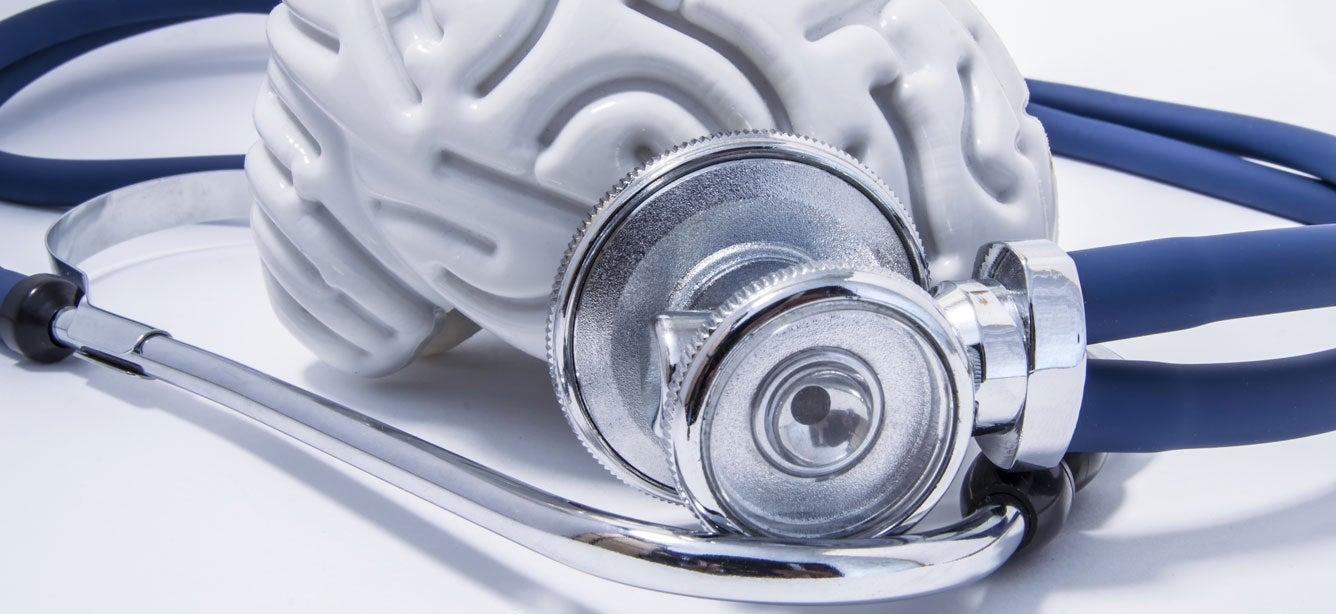
Related Topics
Caring for someone with Alzheimer's disease or other dementia comes with its own set of challenges. When your loved one forgets many things, loving you remains. First, hold onto that, along with your patience. These eight tips for caregivers of Alzheimer's also can help.
Give doctors a personal view
Often, doctors spend as much time talking with the caregiver as with the patient when diagnosing mild cognitive impairment or Alzheimer’s. You can help by remembering behaviors and recollecting memories about your parents, grandparents, and younger self.
Doctors will likely ask about changes in behavior or mood. If they do not, and there is an example you want to share, let the doctor know. For example, is your loved one having a lot of trouble sleeping? Do they seem depressed? Your understanding of your loved one’s situation will not only help the doctor with the diagnosis and care plan, it will make you a better, more confident caregiver.
Tap into the power of music
Music is a powerful connector. People with dementia often have great difficulty with word-finding, but can sing a beloved song without a problem.1 Make a playlist of your loved one’s favorite songs. Make one for yourself, too!
Studies show that the brain retains memories of music even as language disappears.
Remembering songs can help the person with Alzheimer’s feel less isolated (they have a friend in the song). And remembering music together can help caregiver and loved one feel more connected.
Foster your caregiving empathy
Dementia can test your capacity to be empathic. Try your best, but don’t beat yourself up if you can’t always be. In other words, give yourself empathy.
Also, find a doctor who is empathic and understands that, though your loved one is the patient, your experience matters.
It is essential that every caregiver have a support network, which may include doctors, family members, and friends.
Honor your feelings by avoiding denial
Avoid denial—it’s more than a river in Egypt, as Mark Twain allegedly said. Let yourself feel.
One way to avoid denial is to write things down. That forces you to acknowledge what’s happening. Writing your caregiving experiences in a notebook or as a note on your cell phone, if you prefer, will help you process and remember them so when you go to the doctor with your loved one, you will be able to give concrete examples of how your loved one is doing. You should bring this information because it will help the doctor, you, and your loved one.
For example, Cindy's father Jerry Weinstein, who had early-onset Alzheimer’s, several times an hour used to take out his wallet, which contained his Medicare card and driver’s license (though he no longer drove). Those ID cards told him who he was, which he had forgotten. Letting the doctor know about this daily habit offered a window into Jerry's condition.
Ease the symptoms of Sundowning
Your loved one may experience Sundowning or Sundowners as up to 66% of Alzheimer’s patients do.2 This period of increased anxiety and confusion occurs in the late afternoon when day is transitioning into night. To offset the difficulties of Sundowning, you can:
- Try and make time for exercise during the day
- Limit the duration and time of naps (not too long and not too late in the afternoon)
- Keep shades down so your loved one doesn’t get frightened by afternoon shadows
Consider a possible physical cause for mood and behavior changes
Changes in your loved one’s mood or behavior may be caused by many things, including:
- Fatigue
- Depression
- Frustration
- Pain
Although your loved one may not be able to verbalize their pain, they may be trying to communicate it in ways that can be difficult to discern. It is important to remain open to the possibility that something physical is driving the change in mood or behavior. You may want to ask your doctor or psychiatrist for a brain MRI or other test.
Share your knowledge with other caregivers
Share what you know with people who know (and have) less. Did you know education protects your brain? Free online programs and support groups are plentiful. There are many ways to match patients with clinical trials. You can also help other caregivers by teaching them the value of building their own cognitive reserve—that stockpile of words as well as knowledge derived from following curiosity—they might draw from later in life. Some scholars liken cognitive reserve to having extra gears on your bicycle or car.3
Ease the caregiver burden with a team approach
Try to have a multidisciplinary team on your case. The team can include a primary care doctor, nurse, geriatrician, genetics counselor, neurologist and/or neuropsychologist. No matter the specialized education of your clinicians, you still need to know what’s happening and recommended. There are no dumb questions. If the doctor says something you don’t understand, ask them to explain. If you still don’t understand, ask again.
If you are in a remote area or have other difficulties related to access,4 support groups, the BrainGuide, and the Alzheimer’s Association can be helpful in pointing you toward resources that will help with the stresses that come with what is called “caregiver burden.”
Learn more about government benefits that can help you make choices and avoid burnout.
Sources
1. The Magic of Music and the Brain. AARP. Found on the internet at https://stayingsharp.aarp.org/about/brain-health/brain-health-and-music-sample/music-and-brain-health-report/
2. Khachiyants N, Trinkle D, Son SJ, Kim KY. Sundown syndrome in persons with dementia: an update. Psychiatry Investig. 2011;8(4):275-287. doi:10.4306/pi.2011.8.4.275. Found on the internet at https://www.ncbi.nlm.nih.gov/pmc/articles/PMC3246134/
3. What is cognitive reserve? Harvard Health Publishing. Harvard Medical School. Sept. 21, 2020. Found on the internet at https://www.health.harvard.edu/mind-and-mood/what-is-cognitive-reserve
4. Mehrdad Ayati, MD. Moving Ahead With Positive Health Lessons and Innovative Predictions. Medscape. Jan. 25, 2022. Found on the internet at https://www.medscape.com/viewarticle/966768



